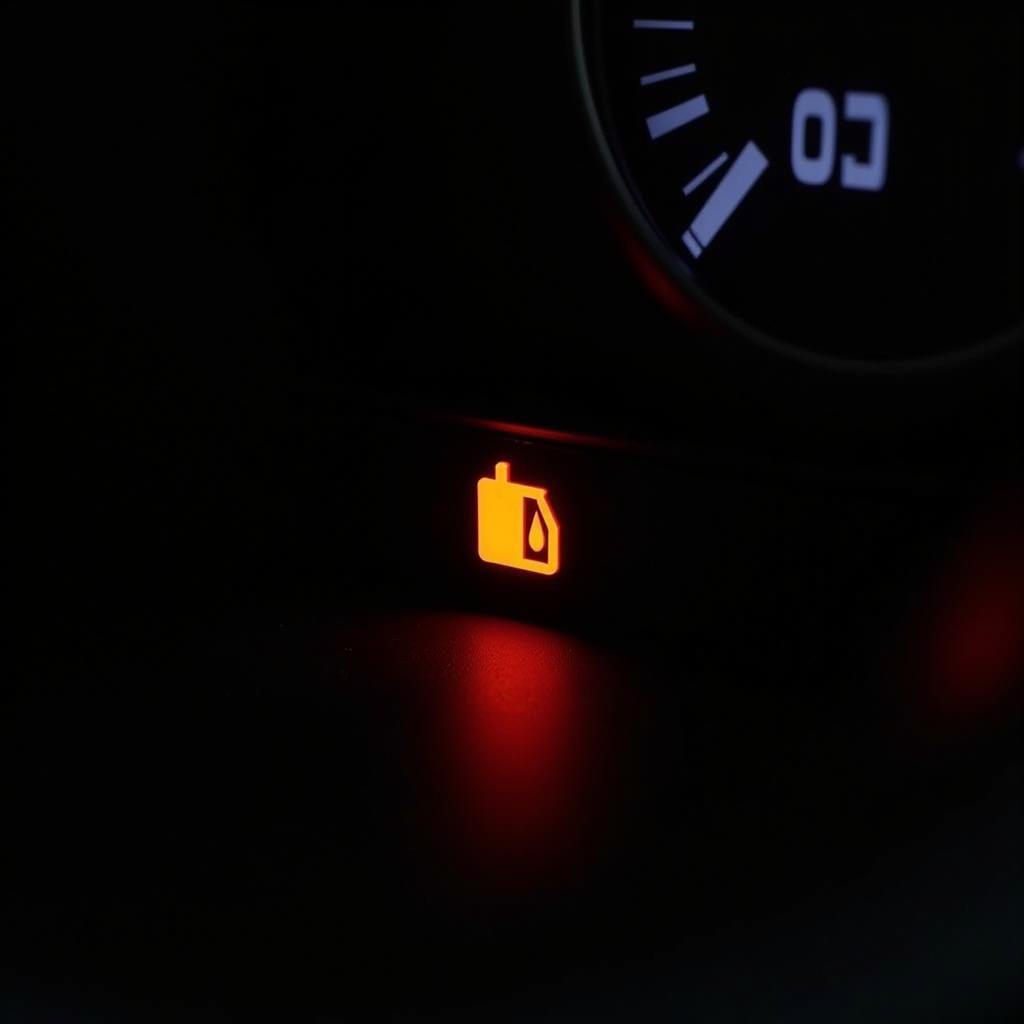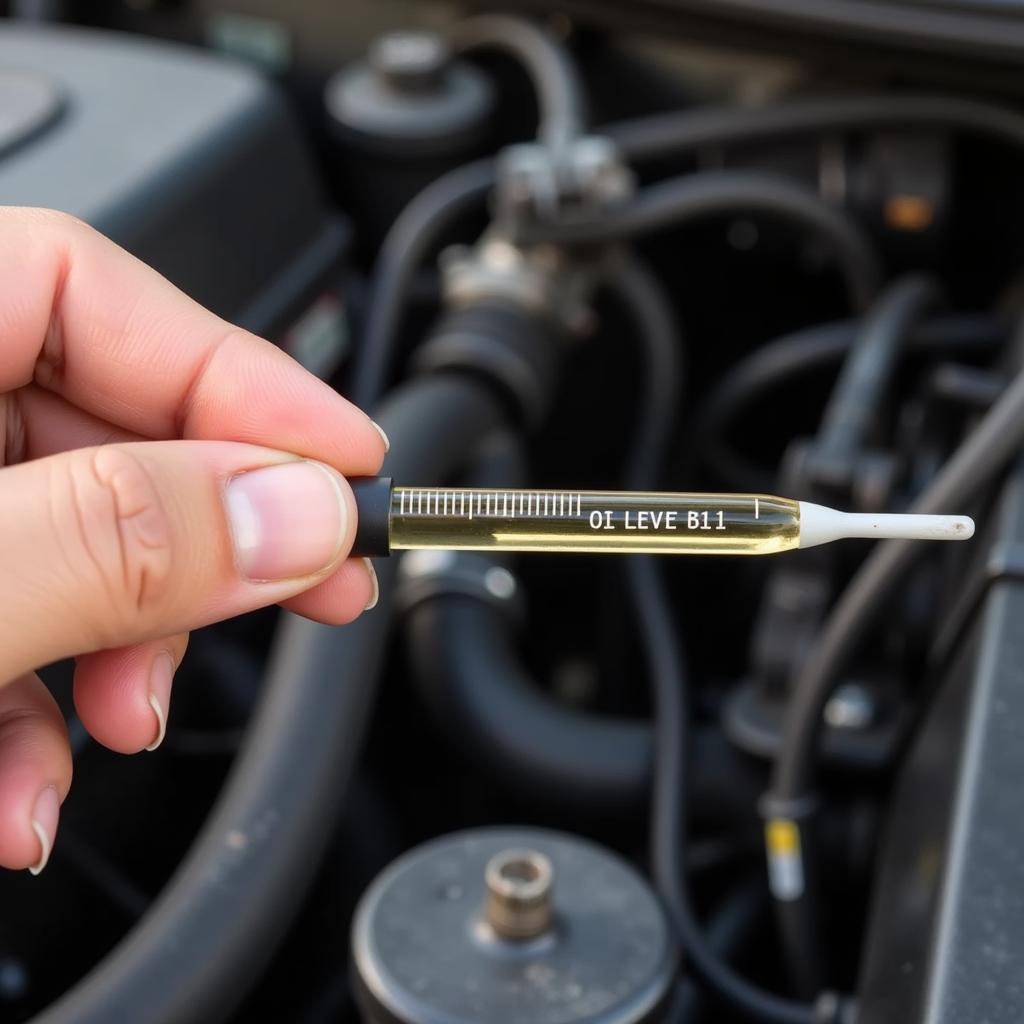Dealing with oil problems in your car can be frustrating and concerning. Whether it’s a persistent leak, unusual noises, or a sudden drop in oil pressure, understanding the common oil problems in cars and their solutions is crucial for any car owner or mechanic. This comprehensive guide will delve into the various oil-related issues you might encounter, equipping you with the knowledge to keep your vehicle running smoothly.
Understanding the Importance of Engine Oil
Before diving into specific oil problems, it’s crucial to understand the vital role engine oil plays in your car’s performance and longevity. Engine oil acts as a lubricant, reducing friction between moving parts within the engine. This lubrication minimizes wear and tear, prevents overheating, and ensures smooth operation.
Beyond lubrication, engine oil also helps to:
- Cool the engine: By absorbing heat generated by moving parts.
- Clean the engine: By carrying away dirt, debris, and combustion byproducts.
- Prevent corrosion: By forming a protective layer on engine components.
 Low Engine Oil Warning Light
Low Engine Oil Warning Light
Neglecting regular oil changes or failing to address oil problems can lead to significant engine damage, costly repairs, and even engine failure.
Common Oil Problems in Cars
A variety of factors can contribute to oil problems in cars. Here are some of the most common issues:
1. Oil Leaks
Oil leaks are a frequent occurrence, often indicated by spots of oil under your parked car. These leaks can originate from several locations, including:
- Oil pan gasket: A damaged or worn-out gasket can allow oil to seep out from the oil pan.
- Valve cover gasket: Similarly, a faulty valve cover gasket can cause oil leaks around the valve cover.
- Oil filter: An improperly installed or damaged oil filter can be a source of leaks.
- Crankshaft seal: A worn-out crankshaft seal can leak oil from the front or rear of the engine.
2. Low Oil Pressure
Low oil pressure, often indicated by an illuminated oil pressure warning light on your dashboard, can be a serious issue. This indicates that the oil pump is not circulating oil effectively throughout the engine. Causes of low oil pressure include:
- Low oil level: Insufficient oil in the engine can lead to low pressure.
- Worn oil pump: Over time, the oil pump can wear out, reducing its efficiency.
- Obstructed oil passages: Dirt, debris, or sludge can block the oil passages, restricting oil flow.
 Checking Car Engine Oil Level
Checking Car Engine Oil Level
3. Burning Oil
If your car is burning oil, you may notice blue exhaust smoke, a persistent burning oil smell, or a need for frequent oil top-ups. Common causes of oil burning include:
- Worn piston rings: Worn or damaged piston rings can allow oil to leak into the combustion chamber.
- Worn valve seals: Damaged valve seals can also lead to oil seeping into the combustion chamber.
- Internal engine leaks: Internal engine leaks, such as a cracked cylinder head, can result in oil burning.
4. Oil Consumption Issues
While some oil consumption is normal, excessive oil consumption can be a sign of a problem. This can be caused by:
- High mileage: Older engines with high mileage may consume more oil due to wear and tear.
- Driving habits: Aggressive driving or frequent short trips can contribute to increased oil consumption.
- Engine design: Certain engine designs are known to consume more oil than others.
Diagnosing Oil Problems
Accurately diagnosing the root cause of an oil problem is essential for effective repair. Here are some steps you can take:
- Check the oil level: Use the dipstick to ensure the oil level is within the recommended range.
- Inspect for leaks: Look for oil spots under the car and visually inspect the engine for any signs of leaks.
- Monitor oil pressure: Pay attention to the oil pressure gauge or warning light on your dashboard.
- Observe exhaust smoke: Blue smoke indicates burning oil, while white smoke may suggest a coolant leak.
For complex issues, it’s best to consult with a qualified mechanic who can perform a thorough inspection and diagnose the problem using specialized tools and techniques.
Resolving Oil Problems
The solution to an oil problem depends on the underlying cause. Here are some common solutions:
- Tighten loose bolts or connections: A simple fix for minor leaks.
- Replace damaged gaskets or seals: Worn-out gaskets or seals require replacement to stop leaks.
- Replace the oil filter: Ensure the new filter is installed correctly to prevent leaks.
- Repair or replace the oil pump: A failing oil pump necessitates repair or replacement.
- Address internal engine problems: Worn piston rings, valve seals, or other internal issues require engine repair.
Preventing Oil Problems
Preventing oil problems is always preferable to dealing with them after they arise. Here are some preventive measures:
- Regular oil changes: Follow the manufacturer’s recommended oil change intervals.
- Use high-quality oil: Choose the correct oil type and viscosity for your engine.
- Inspect for leaks regularly: Address any leaks promptly to prevent them from worsening.
- Avoid driving with low oil: Regularly check and maintain the correct oil level.
- Address engine issues promptly: Don’t ignore warning signs like unusual noises or smoke.
[what brands of cars have oil consumption problems and why](https://autotippro.com/what brands-of-cars-have-oil-consumption-problems-and-why/)
Conclusion
Addressing oil problems in your car is crucial for maintaining its performance, reliability, and longevity. By understanding the common oil problems, their causes, and solutions, you can ensure that your vehicle continues to run smoothly for years to come.
Remember, regular maintenance, prompt attention to warning signs, and using high-quality oil are key to preventing costly repairs and prolonging the life of your engine.
Need help with an oil problem in your car? Contact AutoTipPro today at +1 (641) 206-8880 or visit our office at 500 N St Mary’s St, San Antonio, TX 78205, United States. Our team of expert mechanics is here to help you get back on the road safely and efficiently.






Leave a Reply